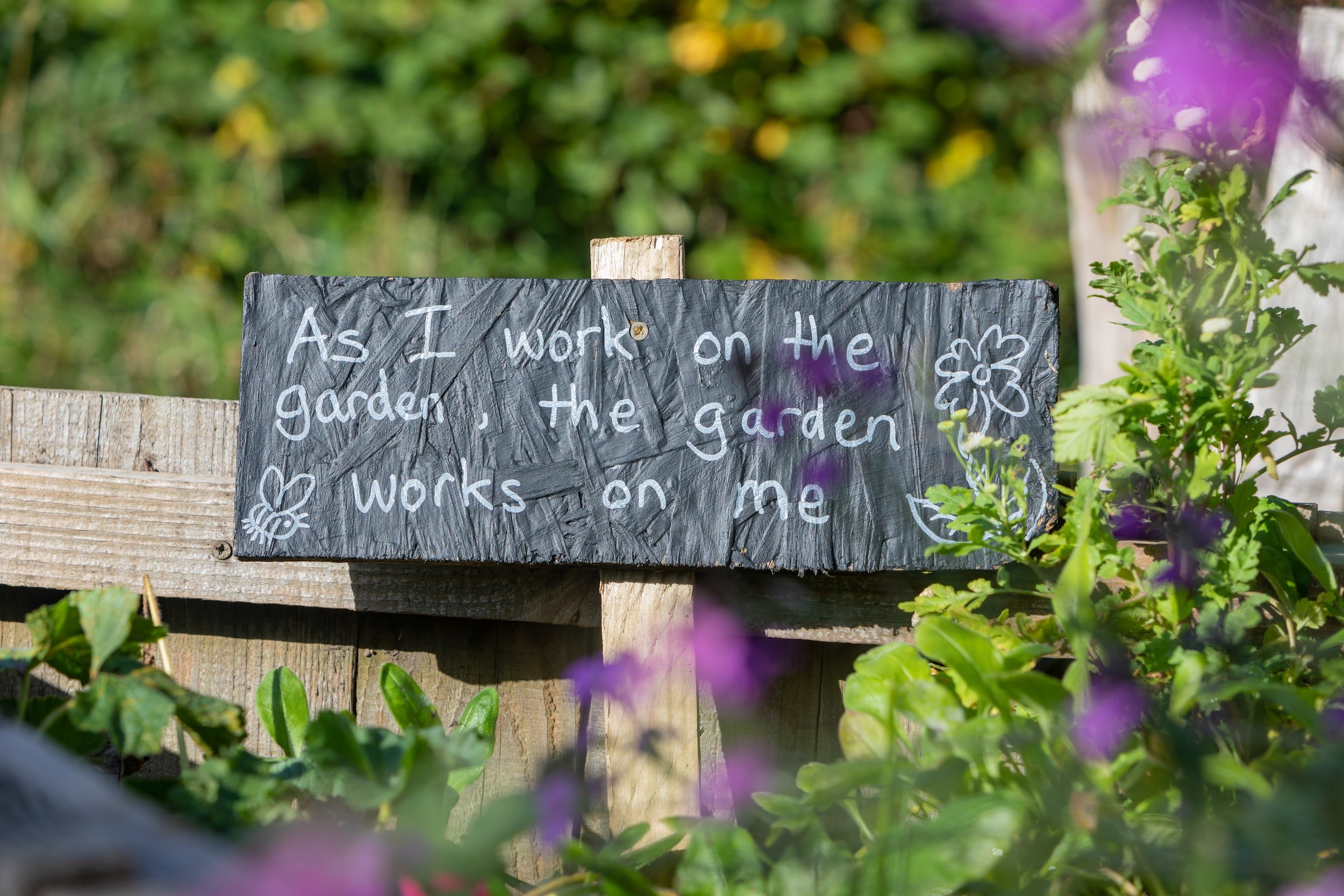
Eco-Tips
Ways to Sustainably Engage in the World
For Individuals:
Eat less meat. Cutting down on the amount of meat you eat, especially red meat, can have a significant impact on reducing your carbon footprint. Drawdown Georgia has identified a Plant-Forward Diet as a high-impact solution for reducing emissions associated with meat production.
Bring reusable bags to the grocery store. Keep a set of reusable grocery bags and reusable produce bags in your car so you don’t forget them when you go grocery shopping. Switching to reusable bags can greatly reduce the amount of plastic you bring home.
Go thrift store shopping to buy lightly used clothes and goods and donate the things you don’t use anymore. Thrift shopping is a great way to help reduce the number of new products being manufactured and help others reuse what they no longer need/want.
Reduced Food Waste is another Drawdown Georgia solution. Buy less than you think you need to prevent purchasing more than you will consume. It is estimated that over two million tons of food is wasted in Georgia every year.
Start composting your coffee grounds and vegetable scraps. If you don’t have a place to compost at home, you can contract with companies like CompostNow who will pick up your compost for you.
Wrap gifts with newspaper or recycled paper to reduce paper waste.
Buy a reusable water bottle to reduce your use of single-use plastic bottles.
Repurpose old clothes as rags.
When possible, opt to receive digital bills and notices to reduce the amount of paper you receive.
Use your phone or tablet to take notes/make a grocery list instead of buying new notebooks or sticky notes.
Use eco-cleaning products to clean the house.
Use eco-friendly toilet paper made out of bamboo.
Stop using single-use plastic straws. Invest in a metal or bamboo straw that is reusable. When you’re at a bar or restaurant, tell the server that you don’t need a straw with your drink.
Take public transportation or carpool with others when you can. Bike or walk to work or to the grocery store, if possible. Alternative Mobility is one of Drawdown Georgia’s high-impact solutions. They estimate that we could reduce carbon emissions by 1 million metric tons if we eliminate 2.5% of our car trips by 2030.
Bring your own to-go container to restaurants so that you don’t need to use theirs.
Unplug devices when you aren’t using them. Even if electronic devices are shut off or in sleep mode, they are still using energy if they are plugged in. Especially before you go out of town, unplug your devices from the wall sockets in order to save energy.
Use bees wax sheets instead of plastic wrap for food in your fridge
Save the peels of your onions, carrots, garlic, and celery ends to make vegetable stock so that you don’t have to waste this part of the food.
Seal all your windows and/or replace them with more efficient double-paned windows.
Hang your clothes to dry on a line or drying rack instead of using the dryer
Bring a thermos to a café or coffee shop to get your coffee or tea to go in a reusable container
Buy bulk beans and other nonperishables instead of getting canned goods. Borrow books from the library instead of purchasing new copies
Buy cloth napkins for the dinner table instead of using paper towels or napkins
Find e-waste recycling programs when disposing of your electronics
Look into joining a local CSA to get your produce, supporting local farmers and more sustainable agricultural practices.

For Faith Communities:
Commit to preaching in your faith community about environmental justice and eco-stewardship. Connect your faith leader with GIPL to learn how to preach and teach on climate justice and environmental issues.
Include prayers for the Earth and the Divine presence in Creation during weekly services!
Embrace Art! Have an artistic member craft artwork, offer a liturgical dance, or share a poem of their own that explores the connection between the Divine and Creation.
Hold an educational workshop or open forum dedicated to the topic of environmental stewardship as a faithful practice.
Pass-the-Plate for the Earth! Consider dedicating your congregation’s offering to GIPL or another environmental cause, or allocate those funds to your own congregation’s Green Team or sustainability commitments.
Grow a garden! Consider edible landscapes for your faith community’s outdoor spaces or partner with a local community garden, and use the fruits of your labor in worship.
Commit to zero-waste worship and congregational events! Recycle and compost all refuse from the weekend’s activities, and contact Hannah Shultz, Program Associate to schedule a Waste Audit.
Make a pledge as a congregation to use less energy and water. Schedule a professional energy audit and water audit through GIPL’s Power-Wise and Water-Wise programs.
Host a vegetarian meal in your faith community! Use the time to discuss issues about food waste, sustainability, and environmental stewardship.
Enjoy the outdoors together as a faith community! Worship outside, or plan a communal walk/hike and explore a local park. Engage all your senses to engage the wonders of Creation all around.
Screen a documentary about an environmental issue. The GIPL team has many film suggestions for faith communities to view, like Flint: The Poisoning of an American City, which includes a follow-up discussion about water issues in Georgia. Email Program Associate Hannah Shultz to set up your screening!
Invite someone, or several people, from your faith community to give a testimony about why they care about environmental justice and stewardship and why they got involved in this work. Our Creator is calling all of us to explore the intersection between faith, climate, and justice, so trust your own ideas when they come to you!
